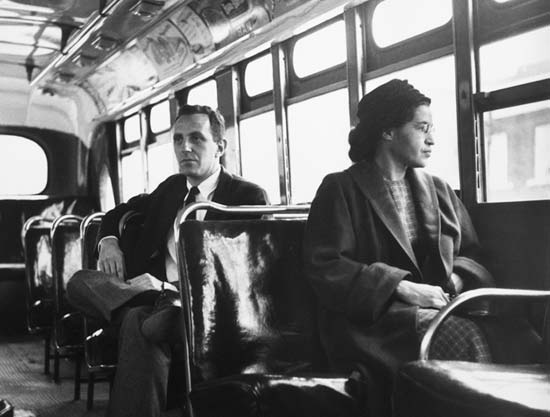Reframing the Refrain: Choice as a Civil Rights Issue

Student achievement data in the U.S. show long-standing and persistent gaps in minority versus majority performance (Vasquez Heilig & Darling-Hammond, 2008). Public concern about pervasive inequalities in traditional public schools, combined with growing political, parental, and corporate support, has created the expectation that school choice is the solution for poor and minority youth (Vasquez Heilig, Williams, McNeil, & Lee, 2011). As a result, many reformers have framed school choice as a “civil rights” issue. Scott (2013a) argued that philanthropists, policy advocates, and leading pundits have followed Secretary Arne Duncan’s conjuring of Rosa Parks and the broader Civil Rights Movement as synonymous with market-based school choice.
It is notable that the school choice movement counts on prominent African American and Latina/o leaders to support vouchers, charters, parent trigger, and other forms of choice. For example, Mayor Castro and other prominent Latina/os in San Antonio, Texas have escalated their search to recruit and attract corporate charters such as the Knowledge is Power Program (KIPP), BASIS and Great Hearts to the city. In Milwaukee, The Black Alliance for Educational Options (BAEO), heavily funded by politically conservative-leaning foundations, has lobbied the public for vouchers for more than a decade. Gloria Romero, former California State Senator, authored a parent trigger bill in California— legislation that allows the current parents in a school to vote to turn the school over to an alternative management organization. In our recent Twitter exchange, Romero framed her bill as a civil rights remedy for low-performing schools. Clearly, African American and Latina/o leaders have formed advocacy coalitions to press for school choice as an alternative to the status quo as our nation has consistently and purposefully underserved students of color (Scott, 2011).
What is surprising is that unbridled choice proponents harp about the limitations of traditional public schools but rarely discuss the predominance of the peer-reviewed research literature that demonstrates limited or no effect of choice (i.e. vouchers and charters) on student success (Scott, 2010). Are there examples of student success in

